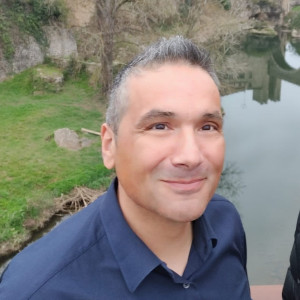
Verbos modales: 'Used to'
"Used to" es un auxiliar modal. En español se suele traducir por solía o acostumbraba, pero también es frecuente su traducción como pretérito imperfecto del indicativo del verbo que le sigue.
I used to smoke when I was young.
Solía fumar/fumaba cuando era joven.
Como verbo modal no necesita del auxiliar "to do" para la forma negativa e interrogativa y puede contraerse en la forma negativa.
| Afirmativa Interrogativa | Forma negativa | Negativa corta |
|---|---|---|
| used to | used not to | usedn't to |
Ejemplo de conjugación:
| Afirmativo | Negativo | |
|---|---|---|
| I used to do | I used not to do | I usedn't to do |
| You used to do | You used not to do | You usedn't to do |
| He used to do | He used not to do | He usedn't to do |
| She used to do | She used not to do | She usedn't to do |
| It used to do | It used not to do | It usedn't to do |
| We used to do | We used not to do | We usedn't to do |
| You used to do | You used not to do | You usedn't to do |
| They used to do | They used not to do | They usedn't to do |
| Interrogativo |
|---|
| Used I to do? |
| Used you to do? |
| Used he to do? |
| Used she to do? |
| Used it to do? |
| Used we to do? |
| Used you to do? |
| Used they to do? |
Aunque hemos visto que no necesita del auxiliar "to do" para para la forma negativa e interrogativa, hoy en día se tiende a usar el auxiliar "to do" sobre todo en inglés americano y se está extendiendo en general al inglés hablado. En este caso vemos que "used to" actúa como verbo ordinario y no como modal.
Did I use to do?
¿Lo solía hacer?
I didn't use to play.
No solía jugar.
Usos del "used to"
1 Para hablar de acciones habituales en el pasado.
I used to play tennis with my cousin.
Solía jugar al tenis con mi primo (ya no).
She used to go to the library every day.
Solía ir a la biblioteca todos los días (ya no).
Para hablar de acciones habituales en presente, se usa el presente simple no "used to" ("used to" sólo tiene esta forma no tiene forma presente, ni past participle , ni infinitivo, ni forma -ing).
He plays tennis with my cousin.
He uses to play tennis with my cousin sería incorrecto.
2 Para hablar de estados pasados.
They used to be friends.
Eran amigos.
They used to be fun.
Eran divertidos
Be/get/become + used to + v-ing
Además de su uso en el pasado, también se puede usar "used to" como adjetivo que acompaña a otros verbos.
En este caso, "to" funciona como una preposición por lo que el verbo que vaya después tendrá que ir en su forma -ing.
"To be" (estar acostumbrado a).
I'm used to waiting for him.
Estoy acostumbrado a esperarle.
"To get" (acostumbrase a).
She got used to living in the town.
Se acostumbró a vivir en la ciudad.
"To become" (llegarse a acostumbrar a).
They become used to getting up at eight o'clock.
Se llegó a acostumbrar a levantarse a las ocho.
Ejercicios
Elige la opción correcta.
1 My sister ____ to smoke.
2 Did you ____ to live in Liverpool?
3 I ____ like her.
4 We ____ going to the library everyday.
5 I ___ my teeth when I was two.
6 ____ play basketball a lot?
7 ____ to running when I broke my leg.
8 I ____ drinking wine with supper.
9 Do you think we ____ the noise?
10 ____ to living together?
Encuentra a los mejores profesores para tus clases de ingles en Superprof.
Resumir con IA:













Quiero aprender ingles
Ta’ Bien
ta bien 🐴👍
🐰
Thanks for your answer. Where can I find more information about that?
Hi Gladys, what information are you looking for exactly? Let us know and we will gladly add more content to our website. Our objective is to make learning as clear and as easy to understand as possible. Have a great day! :)
usedn’t?????????????????????????????????????????????????
Buenas tardes.
1) La respuesta #1 no podría ser -is used to porque el verbo tendría que terminar en -ing.
2)La R#5 no podría ser – become used to washing porque el verbo become está en presente y la oración está en tiempo pasado, por lo tanto seria – became …
3) A la R#7 le falta el pron. Personal principal, además no sería – run, sino running.
4) En la R#9 dice – tot en vez de to.
Por favor revisar. Gracias.
Jorge, ¡gracias por todos tus comentarios! Your English is so good, and you are great at spotting all the little errors. We took advantage of your comment to revise all of the exercises and we can now guarantee you that there are no mistakes left. Thank you for helping us improve the quality of our pages!
Hola Gladys, es una forma correcta, sin embargo no la usamos habitualmente. ¡Un saludo! Take care!